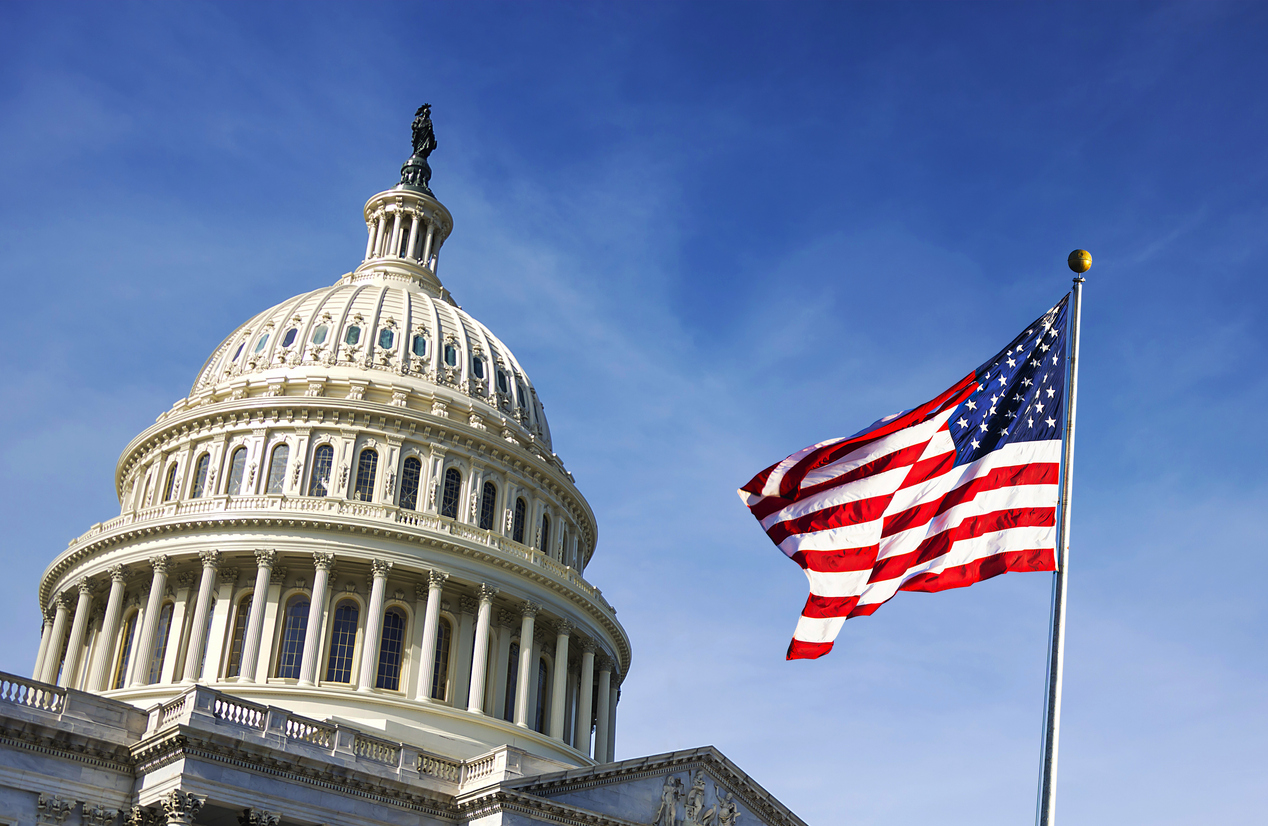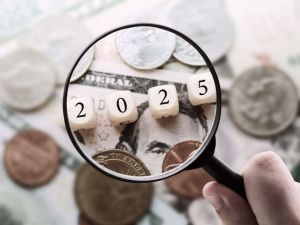One year out from 5 November 2024, the date of the US presidential elections, the primary campaign is gaining momentum. It promises to be one of the most controversial electoral challenges ever in a country that is increasingly politically divided. The US elections will be one of the most significant political events with regard to markets in the coming year and beyond. With an increasingly challenging international situation and Western economies looking to America for stability and balance, the White House challenge becomes a focal point of attention in the markets.
Furthermore, the increasingly polarised nature of American political debate suggests an election campaign with no holds barred, filled with extreme proposals and surprises. This type of rhetoric could lead to market volatility in one direction or another.
The favourite to lead the Republican field is former President Donald Trump, who is facing a series of federal and state criminal charges related to his efforts to overturn his defeat in the 2020 elections, along with other legal issues. Neither Trump’s age (77) nor the numerous controversies have been enough to allow the Republican Party, which is increasingly leaning toward extreme positions, to field another strong candidate capable of challenging Trump.
Joe Biden, the incumbent president, is the likely candidate of the Democratic Party. At the time of the elections, which will take place in November 2024, he will be 81 years old, making him the oldest president in US history to secure a second four-year term. In the coming months, the primary race will begin, where party members and voters will choose their representatives state by state. The Republicans will hold their first nomination competition in January in Iowa. Shortly after, New Hampshire will hold a presidential primary, followed by Nevada, South Carolina, and Michigan. The Democrats plan to hold their first primary in South Carolina in February. “Super Tuesday,” when more than a dozen states will allocate delegates to the party conventions, including California and Texas, will be on 5 March.
Who are the presidential candidates?
Trump is dominating the field of Republican candidates, most of whom have avoided criticising him for his actions related to the 2020 elections for fear of alienating his most loyal supporters. Many of these supporters believe that the election was stolen from him. Trump is currently facing charges in four cases in federal and state courts for his efforts to undermine the 2020 elections, mishandling classified documents, and paying an adult film star to silence compromising news. The former president has consistently claimed his innocence and argued that he is a victim of political persecution. Legal deadlines will overlap with the election campaign and primaries, presumably becoming a central issue.
Republican rivals like Florida Governor Ron DeSantis and former US Ambassador to the United Nations Nikki Haley are cautious on legal issues but hope that Trump’s legal problems could put the President in a difficult position in a possible electoral challenge against Biden. Former New Jersey Governor Chris Christie, on the other hand, has condemned Trump’s attempts to overturn the outcome of the 2020 elections.
DeSantis was initially seen as the most likely candidate to challenge Trump for the nomination, but his campaign has lost momentum, despite having substantial funding. Meanwhile, Haley is gradually gaining popularity but still seems far from being able to challenge Trump, who remains firmly in the lead in the polls.
Opinion polls show that Trump is the candidate with the best chance of defeating Biden, with voters concerned about the incumbent President’s age and his handling of the economy. The American economy has been strong in recent years, with rising wages and employment, significant infrastructure investments, and a gradual reduction in inflation after last year’s peak. However, in this era of imbalances, the ranks of the discontented are growing, leading to dissatisfaction and a lack of confidence in the ability of politics to address challenges. Such sentiments, present in the United States and elsewhere, could end up favouring candidates with unscrupulous agendas like Donald Trump.
The Democratic candidates
Although there are doubts about the president’s leadership even within the Democratic camp, the party’s major figures and key financiers are supporting Biden and his vice president, Kamala Harris. The incumbent president’s primaries are often just a formality, or at least have been in recent years.
The challengers are Dean Phillips, a little-known congressman from Minnesota, and author and speaker Marianne Williamson. These candidacies, which risk becoming a symbolic challenge and may be withdrawn, do not seem to particularly worry Biden at the moment.
The president’s campaign for a second term is based on his handling of the economy in the post-COVID-19 pandemic period. Under Biden’s presidency, unemployment has reached historic lows, the gross domestic product has grown faster than expected and wages have increased. However, inflation also increased last year, and despite decreasing in recent months, voters remain concerned about the high cost of living, which has given the perception to many citizens that they have become poorer in recent years.
The role of foreign policy
Foreign policy will play an important role in the elections. Trump will attempt to play the isolationist card, leveraging the fact that his aggressive rhetoric-based approach would prevent the outbreak of significant crises in which the United States should not be involved. Indeed, the Trump presidency was characterised by relative stability, while under the presidency of Joe Biden, some international crises, including those in Ukraine and the Middle East, have ignited debate. Despite the usual limited weight of foreign policy in elections, the visibility of international issues is increasing, with clear effects on both political camps. For example, the conflict in Gaza has divided opinions in America between those who support pro-Israel policies and those who side with the Palestinians. This makes it likely that foreign policy will become a central topic during the 2024 election campaign.
Trump’s positions on international issues, often characterised by sensational and over-the-top statements, could have a significant impact on the campaign. While Trump has praised Putin and Hamas on some occasions to criticise Biden, his main argument is that his administration has avoided major international conflicts, in contrast to the Biden era characterised by increasing tensions. In this context, many Republicans argue that Trump was more credible in handling international affairs. This rhetoric is also tied to the idea of reducing economic efforts directed abroad to focus more resources for domestic use. However, it’s worth noting that Trump did, in practice, invest in a strong military presence.
Effect on the markets
Presidential elections in the United States have a significant impact on financial markets, sparking interest and questions among investors worldwide, even though the effect on the markets can be unpredictable. Everyone remembers 2016 when the prospect of a surprise election of Trump was considered by many investors to be a market scare, but the reaction was strong growth, driven in part by promises of tax cuts.
Looking at historical data can provide some insight, although every year is different, and identifying the relationship between the election campaign and market performance is by no means a straightforward exercise (many might argue that monetary policy is now a much more determining factor for market trends). A study by US Bank on historical data shows that, on average, both the stock and bond market have exhibited more cautious performance during an election campaign. While over a typical 12-month period, analysts have observed that investments in stocks generate average gains of around 8.5%, in the year leading up to a presidential election, average gains fall below 6%.
However, the research highlights that the difference in performance between the political parties in power is less pronounced than one might think. In other words, it doesn’t seem to make much difference which party wins the presidential elections, but what matters more is whether there is a change of party in the White House. Financial markets tend to prefer political stability and react positively when the party in power remains in office.
Volatility is often a key element during electoral cycles, and specific sectors of the market can react differently depending on the policies proposed by the candidates. For example, the healthcare sector often experiences increased volatility leading up to presidential elections because healthcare policy is largely driven by lawmakers and can undergo significant changes depending on the party in power. Similarly, the energy sector is often subject to greater volatility due to the different regulatory positions of political parties on national energy production and ‘green’ energy initiatives.
However, one of the major policy issues that can influence the markets is international trade. Trade decisions can have a significant impact on businesses and the economy, and these decisions often depend on the combination of the President’s party and control of Congress. In this field, Trump has more isolationist positions than Biden, although both candidates start from similar positions when it comes to China.
*As with all investing, financial instruments involve inherent risks, including loss of capital, market fluctuations and liquidity risk. Past performance is no guarantee of future results. It is important to consider your risk tolerance and investment objectives before proceeding.





